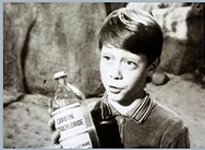"Deoxit is good for old damage and corrosion. It excels in cleaning and leaves a protective layer".... That sounds like marketing rhetoric.
It always makes me smile that nobody (product end users) appear to have conducted their own controlled experiments on various products, on various metal surfaces, to find out:
What happens 3 month down the line after you applied some product to a particular metal, vs what happened if you did not apply it. How long do any lubricating properties last, a week, a month, 6 months ?
Does the product, for the particular metal surface you are applying it to, afford any form of corrosion protection ?
Can it really remove oxidation ?
Will it make matters worse ?
It appears that most electronics enthusiasts can't be bothered finding out for themselves (no more than when a component fails, it is thrown in the bin and not subject to forensic examination to find out why and what its failure mode was)
We end up with all sorts of anecdotal reports about who prefers what product. Who recommends what and remarks like it "always works" for them. If medicine was like this we would still be treating Syphilis with Arsenic and Mercury. A very sage Doctor once wrote in a classical medical textbook : One night with Venus and a lifetime with Mercury.
One very definite thing I have discovered in this area, don't confuse three things: cleaning, de-oxidation and lubrication. As far as I have discovered no product exists that does all three properly, at the same time.
For cleaning I use a zero residue cleaner such as CRC's CO contact cleaner, and for lubrication after that I apply Inox's mx-3. I use these for connectors, IC sockets, potentiometers and switches. The reasons are outlined in this article:
But, unless other people decide to conduct similar experiments, with controls (and to help verify or discount my results), on ranges of different products and materials, , we will remain the victims of marketing rhetoric and personal opinions.



